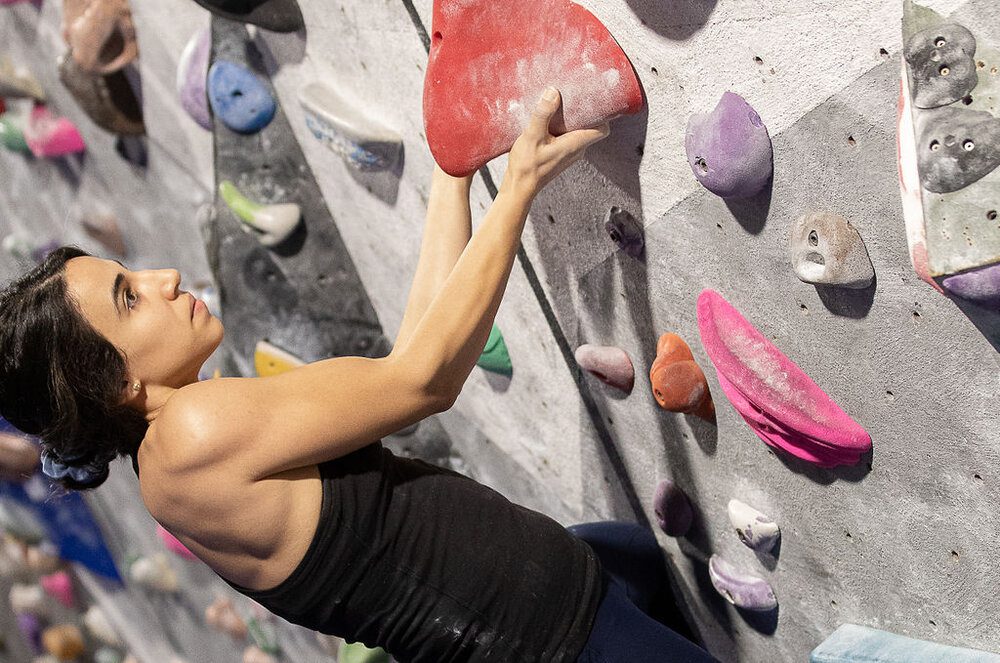
For the past ten years, I've studied the relationship between exercise and mental health. Mostly, I work with people living with mental health conditions, including depression, anxiety, schizophrenia and posttraumatic stress disorder.
While exercise can be a compelling way of improving mood and reducing symptoms, the very nature of these conditions, unfortunately, means that those most likely to benefit from even a little bit exercise are often the least likely to be able to find the motivation or have access to the necessary support needed to overcome the numerous barriers we all face.
While this, of course, is no fault of the individual, and much of the work we have done aims to change the nature of mental health services so that properly designed exercise programs become a routine part of treatment for poor mental health.
If you're finding yourself feeling down, anxious or depressed since our lives got turned upside down earlier this year, then, first of all, you're not alone!
Noticing a decline in your mental health during Covid-19 is, in many cases, a normal reaction to an extraordinary event. Many of us may be feeling grief, loss or even sadness during this unpredictable time.
If you're reading this through, it is likely you are usually a fit, active person with interest in adventure and challenging yourself. The COVID-lockdown has for many of us, substantially reduced our activity levels, and this is likely contributing to the decline in mental health that many of us are experiencing.
Research from healthy volunteers shows that when healthy people are forced into inactivity, levels of depression increase after as little as 7-days. The good news is once people return to regular activity, mood typically lifts along with it.
Similarly, our fitness levels are also related to our mental health. Higher levels of fitness are associated with a lower risk of having depression, while for those family and friends who are inactive, as little as 60 mins per week of activity could prevent somewhere between 12-17% of incident cases of depression.
Importantly, for our frontline health workers and those exposed to trauma and extreme stress as a result of the COVID pandemic, keeping active and maintaining our physical health may be an essential strategy to help prevent the protect against posttraumatic stress disorder.
We can all forgive ourselves at the moment if the motivation to exercise has waned. Despite all the bullshit you may hear about this being a time for self-improvement, learning seven languages or being insanely productive, everyone's lockdown experience is going to be unique, and the impact on people’s livelihoods and mental health is not to be underestimated.
There are numerous predictions of a 'tsunami of mental health issues' likely to follow the initial COVID pandemic. One way around this lack of motivation is 'exercise-snacking' – think push-ups, squats even chin-ups spread throughout the day. Especially for our mental health, this is the time to focus on the total volume of activity we do, not necessarily just the high intensity, structured sessions we may be used to.
Though you may be longing to get back to the crag or the surf, any physical activity at all can provide mental health benefits in these trying times. Permit yourself to try something different until you can get back to the activities you loved most pre-isolation.
Bouldering-therapy, surf-therapy, mountain-biking therapy and in fact [insert any type of physical activity, (usually outdoors) here] have all seen a massive emergence in recent years. While these type activities can undoubtedly have a positive effect on mental health, the common theme is that they are all examples of meaningful physical activity, where the participant is physically and mentally challenged and empowered while improving fitness and enjoying social interactions.
Being a former climber myself, and recognizing my own bias towards climbing as the answer to lots of problems, we need to consider that every individual is different – and especially when it comes to the mental health benefits of exercise, enjoyment is one of the most crucial factors predicting long-term participation. If we want people to exercise for mental health, we have to help find a type of activity they enjoy.
I have just returned from working with the UN in Cox's Bazar, Bangladesh which is currently home to the world's biggest refugee camp, and, in my relative safety and security, here in Sydney, I often find my thoughts wandering to the refugees, friends and colleagues I met there.


Approximately 900,000 Rohingya refugees have fled neighbouring Myanmar and are living in overcrowded camps vulnerable to not only COVID but other severe mental and physical health issues. Interestingly, even in this environment sport has a critical role to play (our podcast with ABC's All in The Mind here) in improving mental health and is unsurprisingly a community-identified strategy for dealing with tension and stress.
Climbing specific charities like Climb-Aid are also doing an inspiring job of translating the science behind exercise and mental health in building communities, fostering social connection and bringing to power of sport to vulnerable populations including refugee communities in Lebanon.
Once the borders open up and I can return to Bangladesh, with the support of Climb Fit, we have plans to build a bouldering wall in-country and bring the joy of climbing to the host and refugee communities.
Five things to try if you've lost all motivation to move:
Set achievable and realistic daily goals – this could be aiming to perform X number of push-ups throughout the day or achieve a certain step count
Be accountable to a friend or loved one
Rescue a dog! having a new four-legged friend will lead to changes in activity levels (please only do this if you are able and committed to looking after it long term
Remember this will pass, focus on the things you can control (like exercise!)
Seek help from qualified exercise professionals for tailored advice and support
Movement can indeed be medicine for our mind. So the next time we are lucky enough to pull onto our favourite route, work a problem in the gym or simply have a coffee with a friend to plan the next adventure, don't forget to appreciate the benefits this brings, not just our bodies but also our minds.
Written by A/Prof Simon Rosenbaum, Scientia Fellow, School of Psychiatry, UNSW Sydney